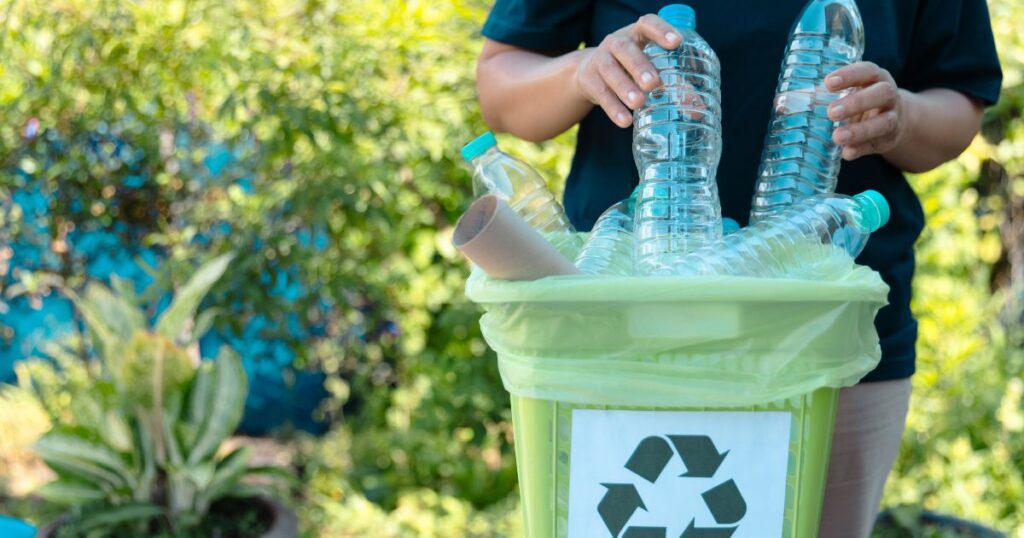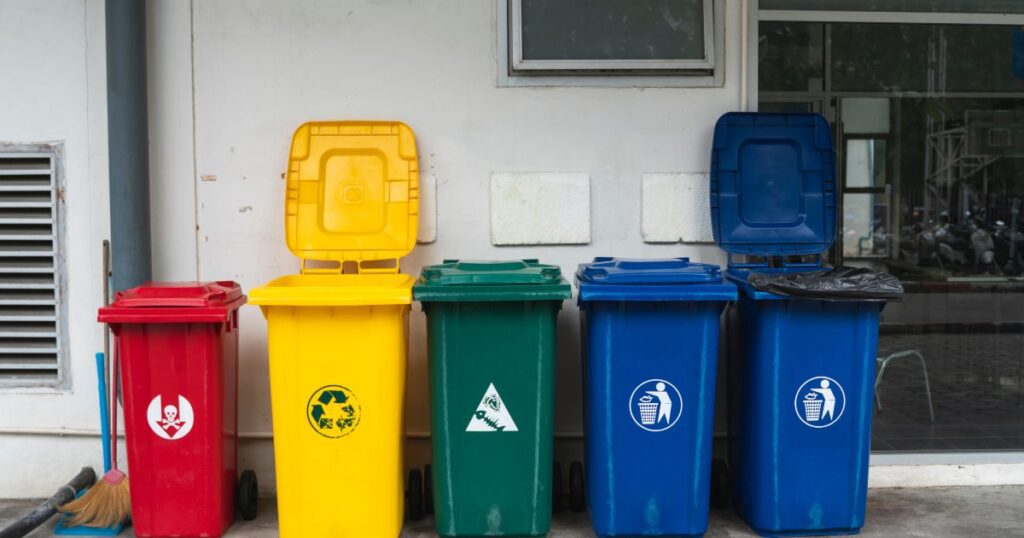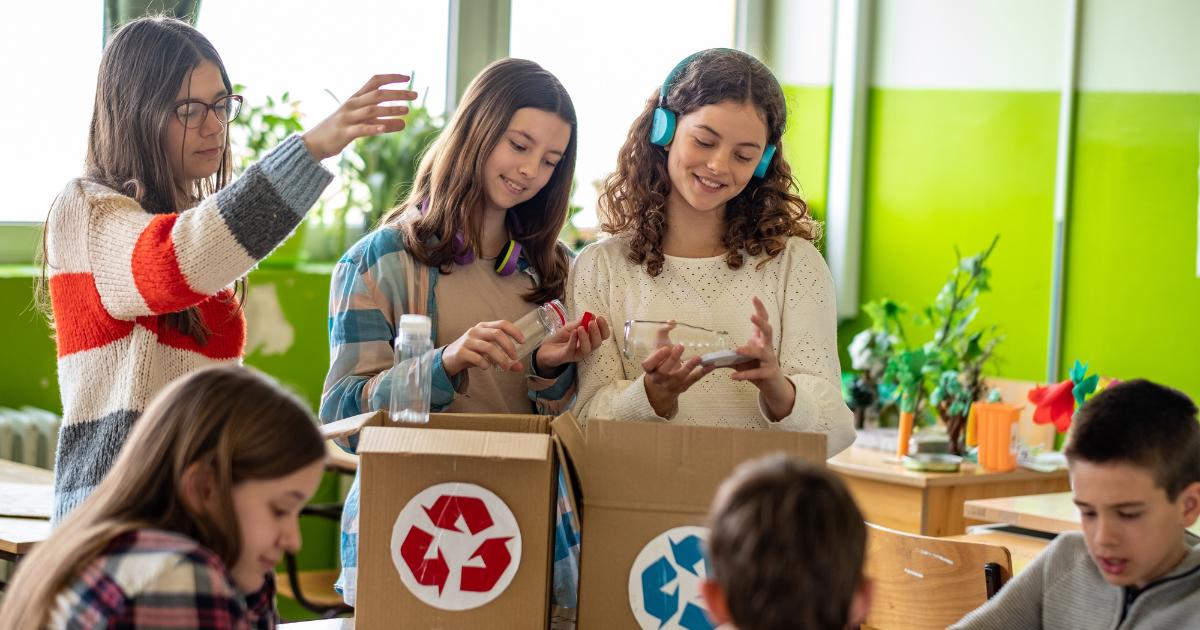As environmental concerns grow, schools have a unique opportunity to lead the way in waste reduction and sustainability.
By embedding eco-friendly practices into their daily routines, educational institutions not only contribute
to a healthier planet but also instill crucial values of environmental responsibility in their students.
Schools are a microcosm of society, making them ideal settings for teaching and practicing waste reduction.
This guide offers a comprehensive approach to promoting waste reduction in schools.
Each strategy, from launching awareness campaigns to implementing recycling and composting programs, aims to engage the entire school community—students, teachers, and staff.
By embracing these practices, schools can reduce their environmental impact, conserve resources, and promote a culture of sustainability.
Here’s a detailed guide to promoting waste reduction in schools:
Launch an Awareness Campaign:
Schools and colleges are ideal settings for raising awareness about waste reduction.
Implement engaging educational programs that make recycling, composting, and waste management exciting and relevant.
For example, host interactive workshops, invite guest speakers who are environmental experts, and create dynamic, visually appealing posters and digital campaigns.
These initiatives should involve students, teachers, and staff, encouraging everyone to become champions of environmental stewardship.
Introduce Recycling Programs:
Strategically place recycling bins throughout the school for different materials such as paper, plastic, glass, and metals.
Ensure that these bins are clearly labeled and accompanied by instructions on proper sorting. For schools needing additional support in managing recycling, our recycling services can provide guidance and infrastructure.
Consider installing color-coded bins and signage that make it easy for everyone to participate.
Regularly empty and maintain these bins to ensure the program’s success and encourage consistent recycling habits.
Establish a Waste Reduction Committee:
Form a dedicated committee comprised of teachers, staff, students, and administrators.
This committee should meet regularly to discuss waste management issues, propose new initiatives, and track progress. Schools looking to streamline their waste management can benefit from our appliance removal and recycling services for more effective waste handling
By having a diverse team, you ensure a variety of perspectives and innovative solutions.
Assign roles and responsibilities to members, such as overseeing recycling efforts or organizing waste reduction events.
Conduct Waste Audits:
Perform waste audits to understand the types and quantities of waste generated in your school.
This involves sorting and weighing waste collected over a period to identify trends and areas for improvement.
Use the data to develop targeted strategies to reduce waste in specific areas, such as reducing paper use in classrooms or improving cafeteria waste management.
Reduce Single-Use Plastics:
Promote the use of reusable items by encouraging students and staff to switch from single-use plastics to sustainable alternatives. Distribute reusable water bottles, lunch containers, and cutlery, and organize “Plastic-Free Week” events to highlight the environmental impact of disposable plastics.
Use these events to educate the school community on the benefits of reducing single-use plastics and how they can make a difference.

Implement Green Procurement Policies:
Adopt purchasing policies that prioritize eco-friendly products. This means choosing items with minimal packaging, made from recycled materials, or those that are biodegradable.
Review and adjust procurement practices to ensure that all purchases align with the school’s sustainability goals.
Share these practices with students to reinforce the importance of making environmentally conscious choices.
Monitor Food Waste:
Collaborate with the school cafeteria to implement strategies to minimize food waste.
This can include practices such as portion control to prevent over-serving, establishing food-sharing programs to redistribute excess food, and coordinating donations to local shelters or food banks. Educate students about food waste and encourage them to participate in these initiatives.
Set Up a Waste Segregation System:
Create a waste segregation system with distinct, clearly labeled bins for recyclables, non-recyclables, and organic waste.
Provide training sessions for students and staff to ensure they understand how to use the system effectively.
Regularly monitor the system’s performance and make adjustments as needed to improve waste separation and recycling rates.

Promote Reusable Items:
Encourage the use of reusable products such as water bottles, lunchboxes, and stationery by providing alternatives to single-use items. Implement a “bring your own” policy for events and promote reusable options through campaigns and educational materials.
Highlight the positive environmental impact of using reusable products and celebrate individuals or groups who make notable efforts in this area.

Introduce Composting Initiatives:
Set up compost bins for organic waste in areas like cafeterias and kitchens.
Educate the school community about composting and the benefits of turning food scraps and yard waste into
nutrient-rich compost. Use the compost to enhance school gardens or donate it to local community gardens.
Involving students in composting activities can deepen their understanding of sustainability and the value of nutrient recycling.
Partner with Recycling Companies:
Collaborate with local recycling companies or waste management agencies to ensure that recyclable materials are collected and processed efficiently.
Organize recycling drives and establish designated recycling points within the school for various materials. For comprehensive recycling solutions, partner with us for junk removal and waste management services.
Build a relationship with these partners to stay informed about best practices and to receive support for your recycling efforts.

Monitor and Celebrate Progress:
Regularly evaluate the effectiveness of your waste reduction initiatives by tracking metrics such as waste diversion rates and reductions in landfill contributions.
Celebrate successes and milestones with the school community to maintain enthusiasm and engagement. For additional support in waste management and to learn more about our services, visit our about us page.
Recognize and reward individuals or groups who contribute significantly to waste reduction efforts, fostering a culture of sustainability and continuous improvement.
By implementing these strategies, schools can foster a culture of environmental responsibility, educate students about sustainability, and make a tangible impact on waste reduction.
FAQs about How to Promote Waste Reduction in Schools and Educational Institutions?
What are the benefits of waste reduction in schools?
Reducing waste in schools helps protect the environment by lowering the amount of waste sent to landfills and reducing pollution.
It also teaches students about sustainability and responsible resource use, creating a more environmentally aware community. Additionally, it can save money on waste disposal and improve the overall cleanliness and health of the school environment.
How can we get students involved in waste reduction efforts?
Engage students by involving them in waste reduction committees, hosting educational workshops and events, and encouraging participation in recycling and composting programs.
You can also integrate waste reduction topics into the curriculum and create student-led initiatives to promote sustainability.
What should we do if recycling bins are often misused?
If recycling bins are frequently misused, consider enhancing bin labeling and providing clear instructions on what can and cannot be recycled.
Conduct educational campaigns to reinforce proper recycling practices and periodically review and adjust the recycling program to address any issues.
How can we measure the success of our waste reduction programs?
Track key metrics such as waste diversion rates, the amount of material recycled or composted, and reductions in landfill waste. Regularly review these metrics and assess the effectiveness of different initiatives.
Monitoring progress helps identify successful strategies and areas needing improvement.
What are some effective ways to reduce food waste in schools?
Effective strategies include implementing portion control, establishing food-sharing programs, and donating excess food to local shelters or food banks.
Educate students about food waste and encourage mindful consumption to further reduce waste.
How can we maintain enthusiasm for waste reduction initiatives over time?
Maintain enthusiasm by regularly celebrating successes, recognizing contributions from individuals or groups, and keeping the conversation about waste reduction ongoing.
Organize events, share updates, and continually involve the school community in new initiatives to keep interest and engagement high.
What are some common challenges in implementing waste reduction programs, and how can we address them?
Common challenges include lack of awareness, resistance to change, and insufficient resources.
Address these by providing comprehensive education, involving key stakeholders in planning and decision-making, and seeking support from local organizations or businesses to provide necessary resources.
How can we effectively introduce recycling programs to students who are not initially interested?
Make recycling engaging and relevant by incorporating it into classroom lessons, organizing competitions or challenges, and highlighting the positive environmental impact of their actions.
Use interactive activities and real-world examples to show how recycling benefits the planet and the community.
What role can teachers play in waste reduction efforts?
Teachers can integrate waste reduction topics into the curriculum, lead by example in their classrooms, and support school-wide initiatives.
They can also help organize educational activities, monitor waste practices in their classrooms, and encourage students to participate in waste reduction programs.
Conclusion
Implementing waste reduction strategies in schools is a powerful way to promote environmental stewardship and create a positive impact on both students and the planet.
By launching awareness campaigns, introducing recycling and composting programs, and fostering a culture of sustainability, schools can significantly reduce their waste footprint.
For practical solutions and services to support these initiatives, consider exploring our commercial trash collection options to manage your school’s waste effectively
Engaging students, staff, and the broader school community in these efforts ensures that everyone plays a role in building a greener future.
Through the combined efforts of educational programs, strategic initiatives, and ongoing monitoring, schools can achieve notable progress in waste reduction.
Celebrating milestones and recognizing contributions keeps the momentum going and reinforces the importance of sustainability.
By making waste reduction a core part of school life, educational institutions can inspire future generations to care for the environment and embrace sustainable practices in their own lives.
